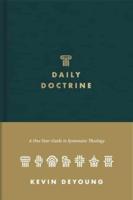Publisher's Synopsis
No one purposefully chooses to become an idolater. No one consciously abandons the living God to fall prey to a pantheon of earthly gods. Yet idolatry has a way of subtly seeping into the cracks of human life.
In Idolatry, Stephen E. Fowl explores how believers lapse into idolatry, a process he insists is much different from the decision of those who have rejected belief in God. He asserts that the Old Testament's account of Israel's idolatry as dramatic folly and betrayal describes the after effects of idolatry, not the process of how believers lapse into idolatry. Idolatry is a process of slowly diverting love and attention away from the one true God and toward false gods.
Fowl identifies the various habits, practices, and dispositions that can lead to this process, using Scripture to demonstrate different ways believers become inclined to idolatry. He first turns to Deuteronomy to show how to combat idolatry by remembering the grace of God. He then examines Ephesians and Colossians to demonstrate how the suggested practices of thanksgiving and gratitude can serve as the antidotes to idolatrous greed. He looks to 1 John to find the love that casts out the fear and insecurity that the books of Kings, Isaiah, and Luke name as the forerunners of idolatry. Finally, he examines curiosity, traditionally considered a vice, and how it turns believers toward idols unless it is countered by an undistracted focus on Jesus.
Idolatry looms over believers in a world overflowing with false gods, but Fowl offers hope. By diagnosing and defining the root causes of idolatry before these initial temptations become precipitated actions, Christians learn to navigate a world littered with false idols to live abundantly with the one true God.










